7. A Man Called Ove (Sweden)

Made on a budget of $350,000, A Man Called Ove made $20 million at the Swedish box office, becoming one of the most popular local films in the country’s history. Based on author Fredrik Backman’s 2012 novel of the same name, the film was also the highest grossing foreign-language film of 2016.
The film tells the story of Ove, a miserable old man who spends his days policing residents of the community which he lives, and voicing his various complaints by the gravesite of his recently deceased wife. Ove is even more irritated after a young immigrant couple with kids moves in across the street from him.
As the film continues we get to know the man inside the rough exterior, and the experiences in his life that made him who he is. Flashbacks provide perspective as Ove first meets his wife, and the life and struggles they shared together. Swedish actor Rolf Lassgard gives a wonderful performance as Ove, providing some laugh at loud moments along with moments that will touch the heart. The film also serves as a lesson in tolerance, and finding commonality among different cultures.
A Man Called Ove was nominated for Best Foreign Language Film and Best Achievement in Makeup at the 2017 Academy Awards, and is available for streaming on Amazon.
6. The Salesman (Iran)
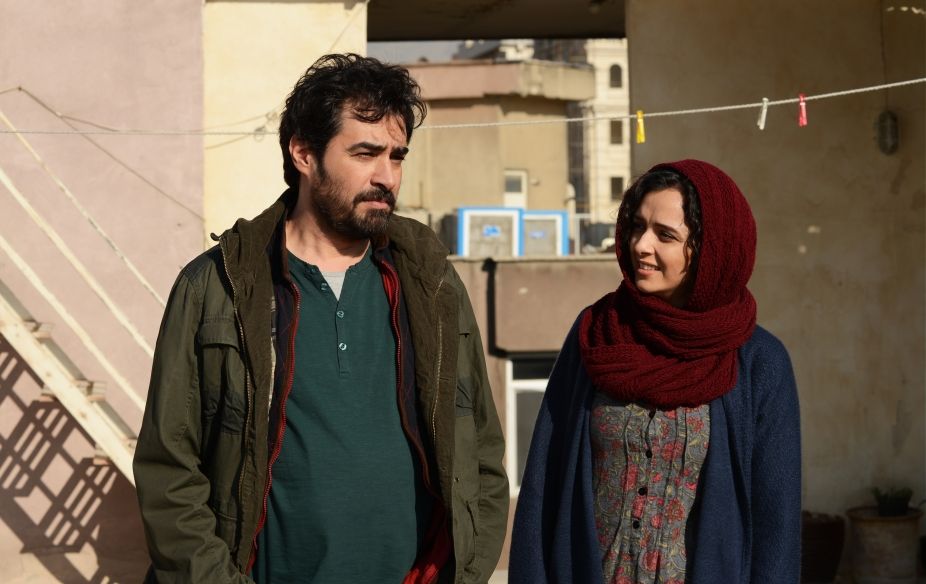
Iranian direction Asghar Farhadi has established himself as one of the prominent directors on the world stage today. His 2011 film A Separation won an Oscar for Best Foreign Language Film and consistently appears on lists of the top films of the decade. He was named as one of the 100 most influential people in the world by Time magazine in 2012.
His other films including About Elly and The Past have strengthened his reputation as a director commenting on domestic complications including class and gender differences in modern Iran. 2016’s The Salesman is another strong inclusion to Farhadi’s catalog, and was nominated for Best Foreign Language Film among several critics’ groups throughout the year.
The Salesman stars Shahab Hosseini as Emad, and Taraneh Alidoosti as Rana; a husband and wife living in Tehran. After their previous apartment was deemed uninhabitable, the two move into a recently vacated unit.
An incident will soon occur in the unit that compromises both their safety and relationship, as the couple learn that the previous tenant had a questionable lifestyle. The husband seeks to find the perpetrator and disgrace him, ensuing his own investigation without consulting the police. He begins to obsess over the perpetrator as if he is the actual victim in the crime, will his attempt to find the man and alleviate his wife’s pain actually strain their relationship even further?
The Salesman was nominated for the Palme d’Or and won Best Actor and Best Screenplay at the 2016 Cannes Film Festival. It was also nominated for Best Foreign Language Film at the 2017 Golden Globes and Academy Awards.
5. The Handmaiden (South Korea)
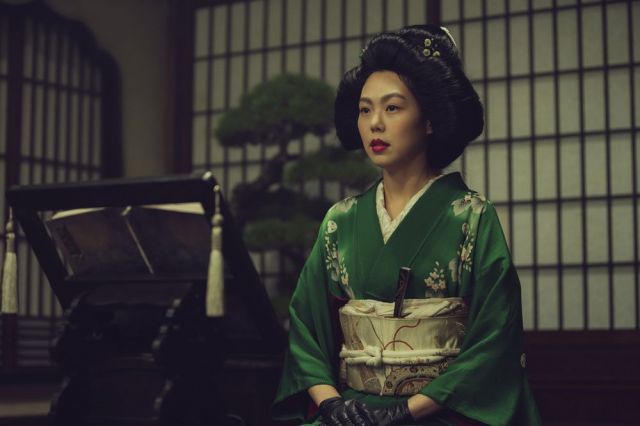
South Korean director Chan-wook Park gained international prominence with his 2003 film Oldboy. Since then he has directed several other notable films including Lady Vengeance, Thirst, and Stoker; but 2016’s The Handmaiden places him back in peak form.
Set in 1930’s Japanese-occupied Korea, the film is an erotic thriller that may have more twists and turns than any other film of 2016. The film tells its story through different character vantage points, different languages (color-coded subtitles to identify Korean and Japanese dialogue), and tells its story in three different parts.
The plot of the story involves a pickpocket named Sook-Hee who is to be the handmaiden for Japanese heiress, Lady Hideko. Hired by a conman masquerading as a Japanese Count, Sook-Hee is tasked to deceive Lady Hideko into marriage with the Count. What follows is a web of deceit, revenge, sex, and seduction told through the lens of a masterful director.
The film is a sheer visual beauty. Colors burst from every scene, rich and dark in the first act, then brightening as the story shifts. The production and costume design also stands out along with lush cinematography. The Handmaiden is a heist movie, a love story, an erotic thriller, and revenge fantasy all rolled into one. The Handmaiden was nominated for the Palme d’Or at the 2016 Cannes Film Festival, and ended up on several critics’ top 10 lists of the year along with multiple critic’s association awards.
4. The Wailing (South Korea)
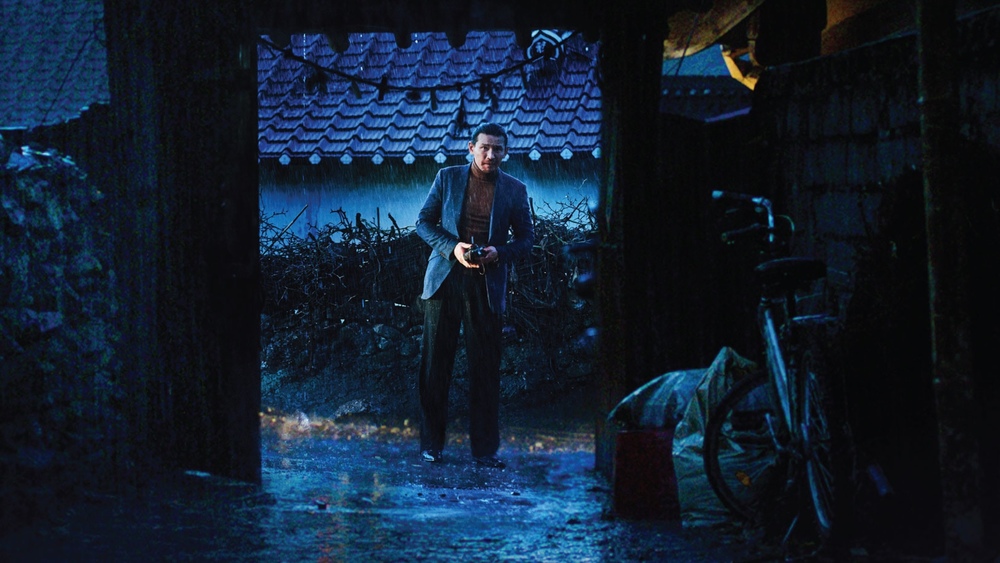
South Korean cinema has experienced a new wave revival during the 21st Century led by directors like Joon-ho Bong (Memories of Murder, The Host, Mother, Snowpiercer), Chan-wook Park (Oldboy, Stoker, The Handmaiden), Jee-woon Kim (I Saw the Devil, A Tale of Two Sisters), Chang-dong Lee (Oasis, Secret Sunshine), and Hong-jin Na (The Chaser, The Yellow Sea). Hong-jin Na may be the least prolific of the bunch, but his 3rd feature film, The Wailing, his first film in 6 years, is a horror film that is well worth the wait.
The film begins as a mysterious disease begins spreading around the village causing the residents to commit murder and then die. This disease seems to coincide with the arrival of a Japanese man who is living in the outskirts of the village. What ensues next is 2 ½ hours of sheer hysteria, horror, and entertainment. During this ride the film touches on different aspects of Korean culture, including anti-Japanese sentiment and the conflict of various religious ideologies. H
ong-jin Na’s mastery of suspense in prior films like The Chaser is once again showcased throughout, some on the level of absurdity, but nonetheless fun. Full of several twists and turns, the viewer gets the sense that anything can happen next to anyone, no one is safe, just hold on and brace yourself for what is going to occur. The Wailing is available for streaming on Netflix.
3. Aquarius (Brazil)
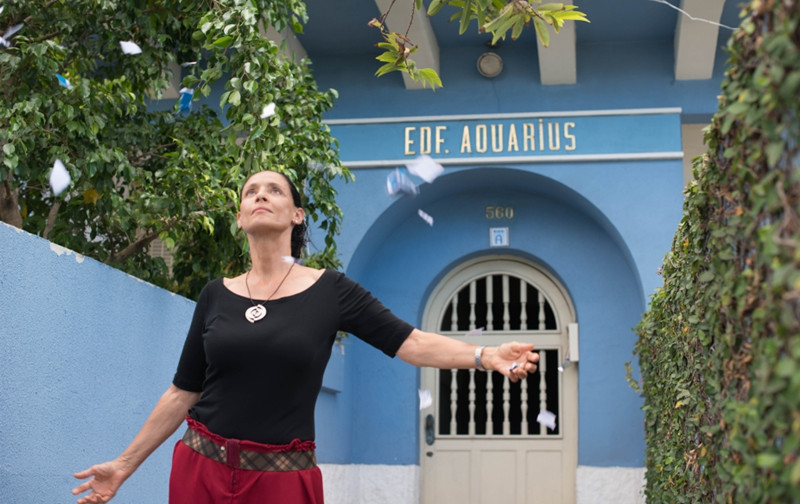
Set in Brazil’s northeastern city Recife, Aquarius tells the story of a woman living as the last resident in her housing unit (Aquarius), refusing to sell to developers that are planning to gentrify the area. Sonia Braga stars as Clara, a 65-year-old retired music critic, widow, and breast cancer survivor who spends her days enjoying the ocean at her beachfront property, and the building she has lived most of her life.
Clara is stubborn, as described by her daughter, and lives life on her own terms. The developers hoping to buyout Clara’s unit use harassing tactics to make her leave, culminating in the final scenes of the film as Clara confronts the developers in their office headquarters.
Director Kleber Mendonca Filho is patient in telling this story. The camera at times gives sweeping takes across Clara’s home, and beautiful sounds of samba are heard from Clara’s record player. Aquarius resonated throughout Brazil upon its release, particularly due to the country’s tumultuous political climate.
The film garnered further controversy after it was not selected as Brazil’s submission for best foreign language film for the academy awards. Regardless of its lack of attention during awards season, Aquarius is one of the best foreign language films of 2016. Aquarius is also available for streaming on Netflix.
2. Elle (France)
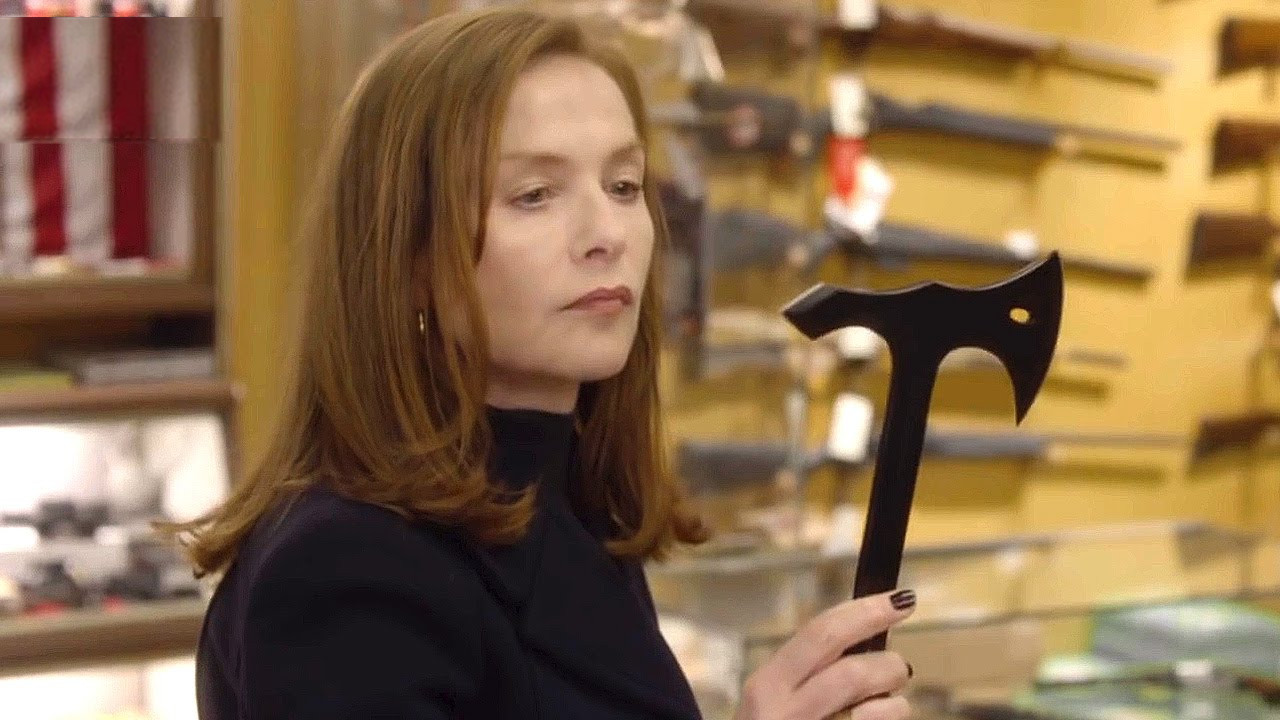
Director Paul Verhoeven’s Elle was perhaps the most controversial and divisive film of 2016, foreign or domestic. Based on the novel ‘Oh…’ by Philippe Djian, Elle is rape-revenge story which turns into a psychological thriller.
Verhoeven, whose filmography includes films like Black Book, Starship Troopers, Basic Instinct, Total Recall, and Robocop, ventures into new territory with a French film starring perhaps the greatest living actress, Isabelle Huppert. Isabelle was not Verhoeven’s first choice however, the director first reached out to several prominent American actresses to play the role, but they refused.
Verhoeven would later say, “I agree that there are not many female parts, certainly not in American cinema. It’s weird that when there is one, they lacked the audacity to be controversial. I hope all these actresses see the movie.” Verhoeven would decide to make the film in French, learning the language in order to communicate to the cast and crew.
The plot of the film surrounds Isabelle Huppert who plays Michele Leblanc, a successful businesswoman who is attacked and raped by an unknown assailant inside her home. Rather than go to the police to report the attack, Michele carries on as if nothing happened, telling a few friends nonchalantly about the attack over dinner. What follows in the film is a dark, demented turn as Michele discovers who her attacker is.
Isabelle Huppert is no stranger to provocative roles. Her more popular films like ‘The Piano Teacher’, ‘Le Ceremonie’, ‘White Material’, ‘Amour’ and ‘8 Women’ find her playing roles of flawed characters not looking for sympathy from its audience. With Elle in particular, the rape-revenge fantasy can understandably have it critics.
Verhoeven however, is ultimately making a film about power dynamics in relationships, and in particular sex. Sheila O’Malley from RogerEbert.com writes, “When Michèle does consent to sex, enthusiastically, watch how her lover is unnerved by a woman who wants it, who doesn’t have to be talked into it. He’s almost turned off by her sexual agency.
And that, ultimately, is the most cutting observation in “Elle,” and “Verhoeven’s aim is accurate and deadly. Men not knowing what to do with a woman who wants sex and knows how she wants it.” Leslie Felperin of The Hollywood Reporter said of Elle, “Paul Verhoeven’s film about a woman’s complicated response to being raped will draw ire from feminists and others, but it’s one of the bravest, most honest and inspiring examinations of the subject ever put onscreen.”
Isabelle Huppert appeared all throughout the 2016 awards circuit, and her and the film itself collected over 70 nominations, winning over 45 including several critics’ awards. Elle was nominated in 11 film categories at the 2017 Cesar Awards, and won Best Foreign Language Film and Best Actress at the 2017 Golden Globes. Isabelle Huppert was nominated for Best Actress at the 2017 Academy Awards, and Elle would go on to appear on several critics top 10 lists for the year.
1. Toni Erdmann (Germany)
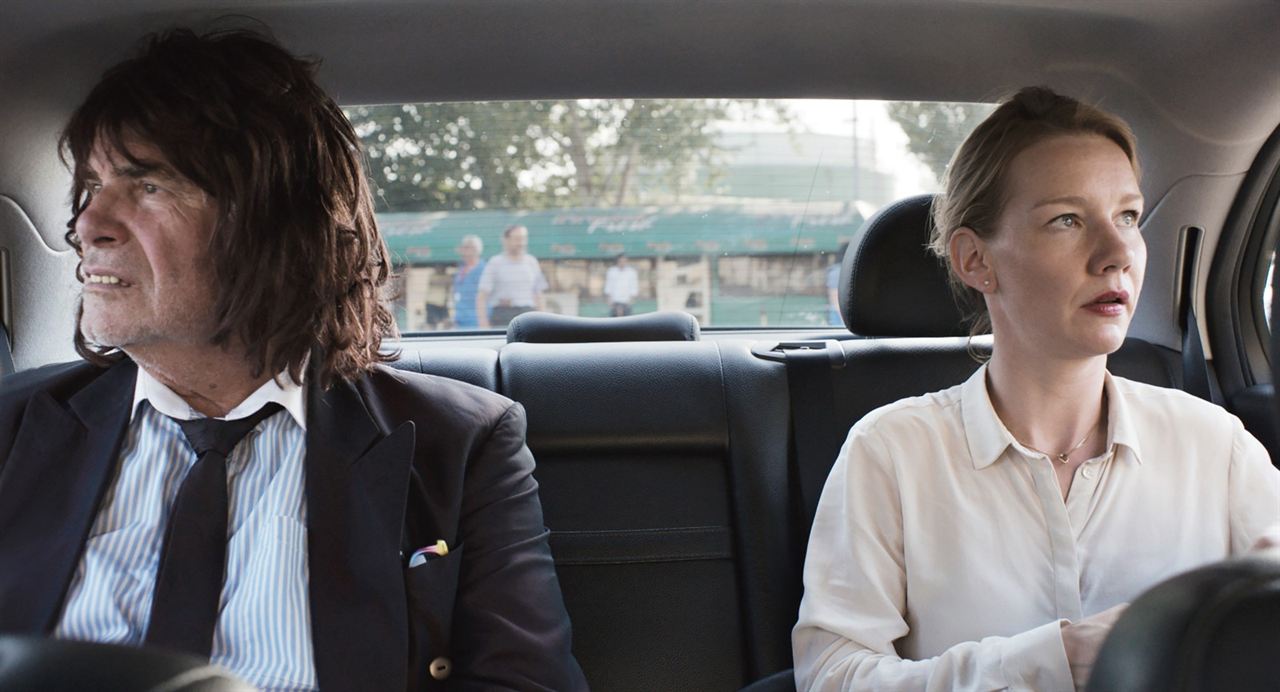
Maren Ade’s third feature film, Toni Erdmann focuses on a testy emotional bond between a father and daughter. The film stars Sandra Huller as Ines, a self-determined, career driven consultant; and Peter Simonischek as Winfried (or Toni as we will see later), her father. The performance of both actors are among the best of 2016. Winfried is a compulsive practical joker, pulling pranks on everyone from family members to the local mail courier. His disguise of choice includes bad-fitting false teeth and a shaggy wig, for which he calls his alter ego, “Toni Erdmann”.
Maren Ade loosely based the father on her own dad who would also wear fake teeth as a gag to play practical jokes. Toni’s gags to his daughter throughout the film are hilarious, but although the film is named after the father character, it is the daughter Ines that is the central subject of the movie. She’s cold, stressed, impatient, and spends most of her time either around colleagues and clients, or talking business on her cell phone.
Seeing how stressed his daughter is, Toni makes awkward attempts to reach out and make contact with her in the most inopportune situations. He pops up at her office as she walks in with co-workers, he appears at after work events as her daughter talks with others, introducing himself as a ‘life coach’ to associates.
A first glance Toni Erdmann may seem like a simple father daughter comedy, but the central crux of the film deals with bigger ideas in contemporary Europe.
The film looks at the direction which Europe is going, the threat to local customs, the values that are becoming common within a capitalistic society, and the family dynamic becoming compromised as citizens struggle to keep up. Some viewers may note the films run time at 162 minutes, but the time allows the viewer to get to know the characters, and the film flows effortless with no lulls.
Toni Erdmann can also boast of perhaps the top film scene of 2016. In this scene, Ines and Toni attend the party of a mutual friend. Toni then announces to the crowd that Ines would like to sing a song before they leave. What follows is magical as Ines sings Whitney Houston’s ‘Greatest Love of All’. It is a painful, funny, self-reflecting moment, and an unforgettable scene.
In an industry where women directors come few and far between, it is refreshing to see Maren Ade arrive on the international film stage and become a new name to look out for in the future.
Toni Erdmann cleaned up at the 2016 European Film Awards with Ade winning Best Director, a first for a female director, along with Best Picture, Best Screenwriter, Best Actor, and Best Actress. Toni Erdmann was nominated for the Palme d’Or at the 2016 Cannes Film Festival, and was also nominated for Best Foreign Language Film at the 2017 BAFTA, Cesar Awards, Golden Globes, and Academy Awards.
Both Film Comment Magazine and the British Film Institute’s prestigious Sight & Sound Magazine named Toni Erdmann the #1 film of 2016. An American remake of Toni Erdmann has already been greenlit by Paramount Pictures. The film will star Kristen Wiig and Jack Nicholson in his first role in over 7 years.